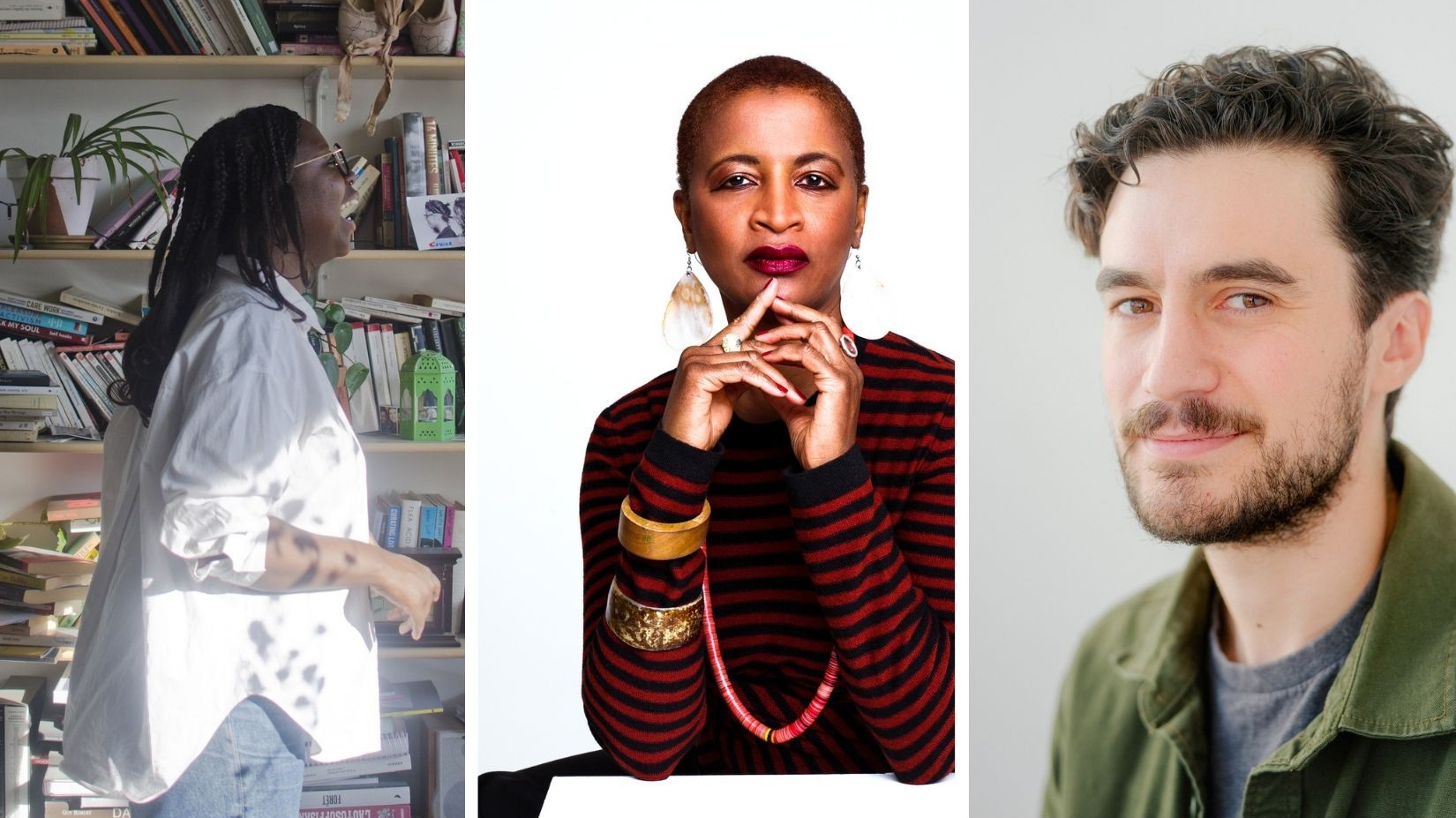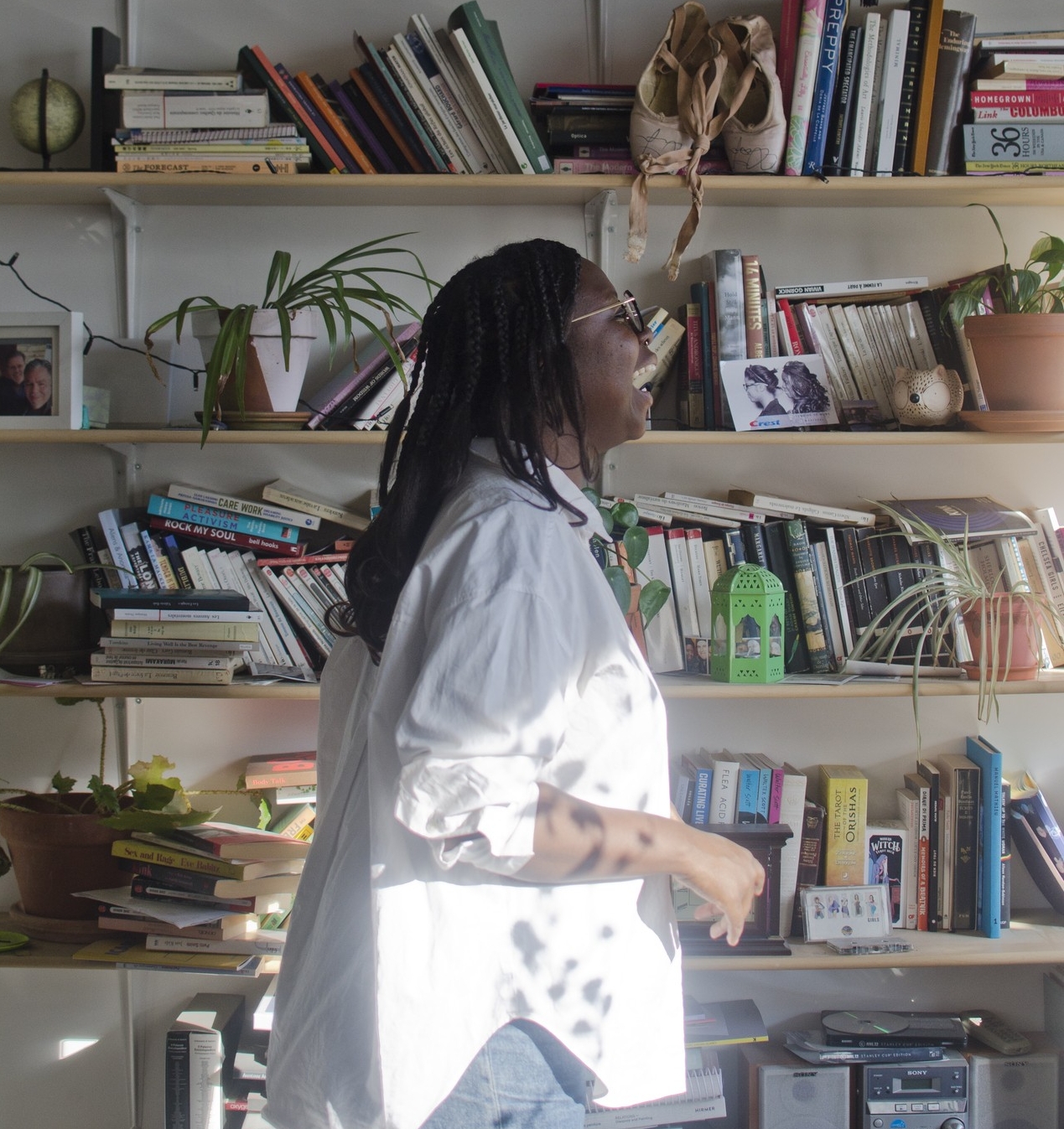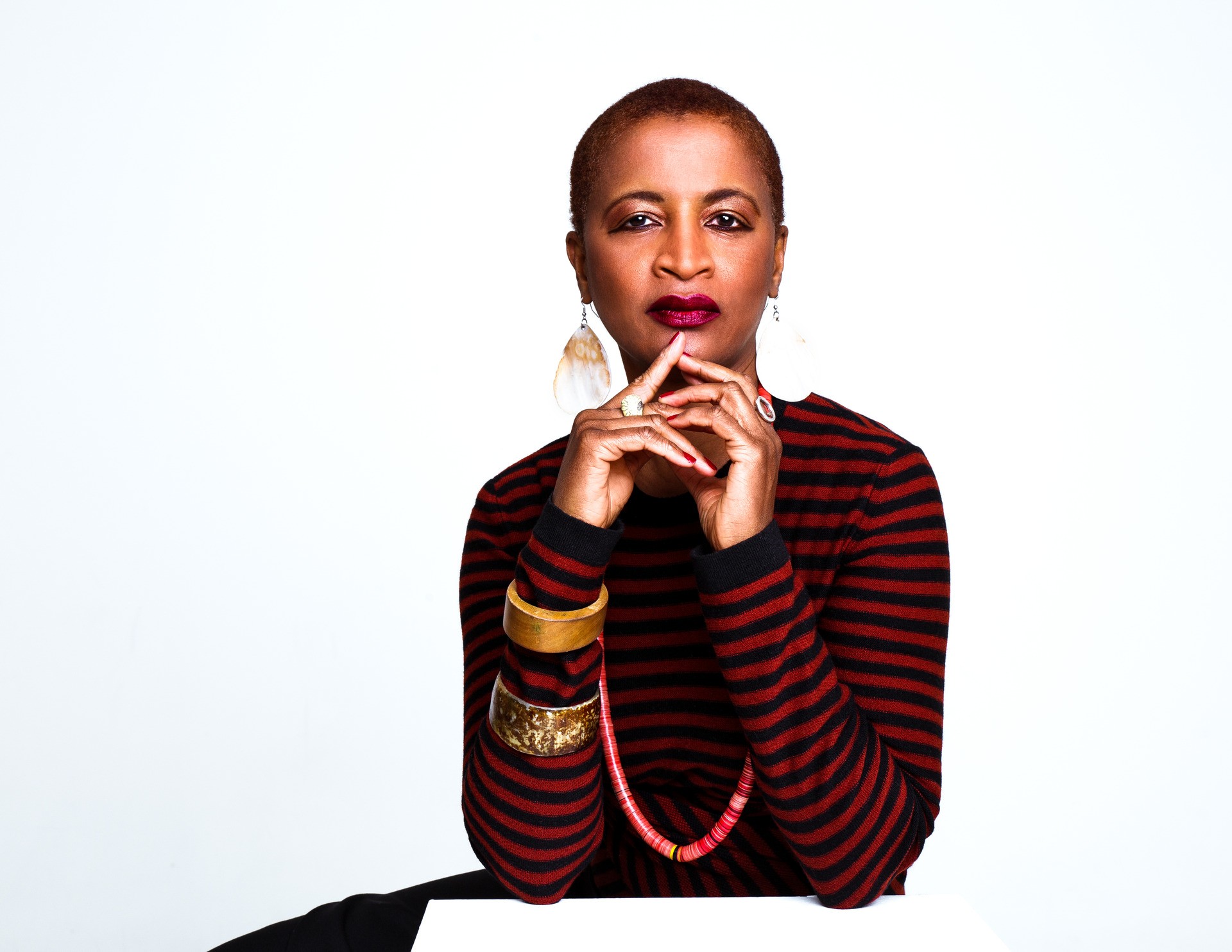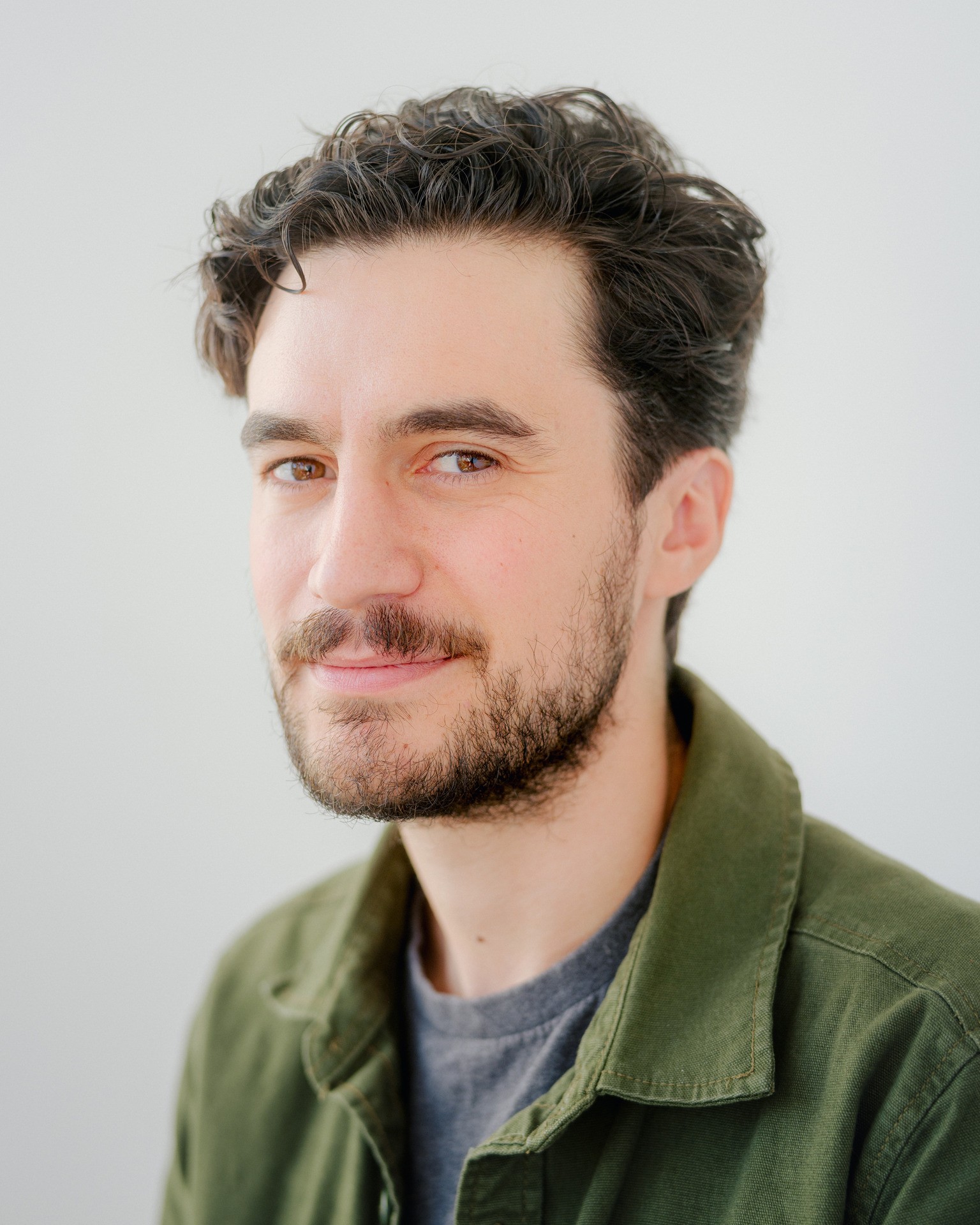Concordia’s new curatorial graduate programs welcomes three Scholars-in-Residence
 From left to right: eunice bélidor, Dominique Fontaine and Didier Morelli
From left to right: eunice bélidor, Dominique Fontaine and Didier Morelli
This September, Concordia’s Department of Art History launches its new Graduate Certificate and Microprogram in Curatorial Studies and Practices, guided by three inaugural Scholars-in-Residence who will bring hands-on expertise and fresh perspectives to train the next generation of curators.
Meet the Scholars-in-Residence
eunice bélidor, BA 12 (Art History) – ARTH 676/678 (Fall/Winter)
Curator and professor eunice bélidor is eager to bring a hands-on, workshop-based approach to her class, a philosophy she sums up in the words: “Curating is an active field that happens by doing.”
"Students must understand how curation emerged as a practice and how it continues to evolve in response to contemporary contexts. Curating is both practical and relational,” she emphasizes.
“Students will learn to work with and for artists, and to recognize the curatorial differences between various kinds of art institutions,” she adds.
 eunice bélidor
eunice bélidor
Dominique Fontaine – ARTH 678, 677, 679 (Winter/Summer)
Dominique Fontaine brings extensive international curatorial experience and a commitment to socially engaged art. “As a curator, I have worked across diverse geographical contexts, which has helped me cultivate a broad perspective on contemporary art and curatorial practices shaped by curatorial activism, plural histories, and the social role of art,” Fontaine explains.
She plans to bring a similar lens to the classroom and to offer a perspective that connects theory with lived practice, whether in the classroom or through collaborative exhibition-making. “Sharing knowledge and mentoring emerging curators and scholars has always been central to my work. My passion for education guides how I teach, how I mentor, and how I foster critical dialogue, especially around representation, equity, and the transformative potential of exhibitions.”
“For me, curating has never been just about organizing exhibitions. It’s about shaping conversations that matter,” she highlights. “As social inequalities grow and histories remain contested, the next generation of curators must approach their work with ethical responsibility, flexibility, and curiosity. Contemporary artists are already doing this work — challenging dominant narratives, reflecting on urgent global issues, and imagining new possibilities. Curators need to meet them in that space, bringing inclusive and context-sensitive approaches that resonate across cultures and disciplines.”
 Dominique Fontaine
Dominique Fontaine
Didier Morelli, BA 11 – ARTH 676/678 (Fall/Winter)
With curatorial practices rapidly evolving, Didier Morelli emphasizes the need for adaptability and critical thinking. “With increased threats to vulnerable and marginalized communities and with the defunding of various arts organizations and programs across the country, it is important that we think of curating as a skillset or toolkit that can be deployed laterally in many ways to shed light on important issues all around us,” he says.
“Nimbleness, the ability to juggle many realities, and trust in a process that is not always linear or clear from the outset are critical in finding a pathway through the noise and raising important questions where there might be opportunities for conversation, dialogue, or the defense of freedom, life, and basic human rights,” he adds.
With broad experience across various platforms, spaces, mediums, and time periods, Morelli is eager to support students in becoming the curators they want to be. “As someone who likes to bridge the past with the present, liveness with the more static, and get to the underlying core of social, cultural, and political issues, I think this type of program will be wonderful in allowing each individual to forge their own path and identity as a curator.”
 Didier Morelli
Didier Morelli
Hands-on learning and critical dialogue
The programs offer a flexible, hands-on environment for students to experiment, learn, and create — whether in the department’s galleries, the new new Elspeth McConnell Critical Curatorial Laboratory, or in partnership with Montreal’s wider cultural community.
Students will develop skills in exhibition-making, project management, and collaborative approaches, all increasingly important in contemporary curatorial work.
“It’s about shaping conversations that matter, connecting theory with practice, and exploring how art interacts with society. Having these three exceptional scholars guiding our inaugural cohort ensures that students engage deeply with both the conceptual and practical aspects of contemporary curatorial work,” adds Gabrielle Moser, graduate curatorial program advisor and the new Chair of the Gail and Stephen A. Jarislowsky Institute.
Find out more about Concordia’s Graduate Certificate and Microprogram in Curatorial Studies and Practices.

